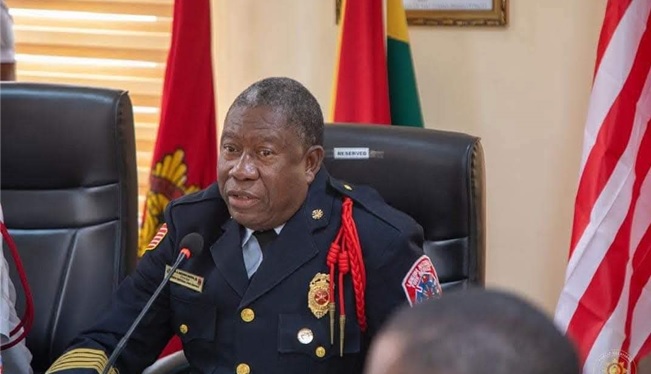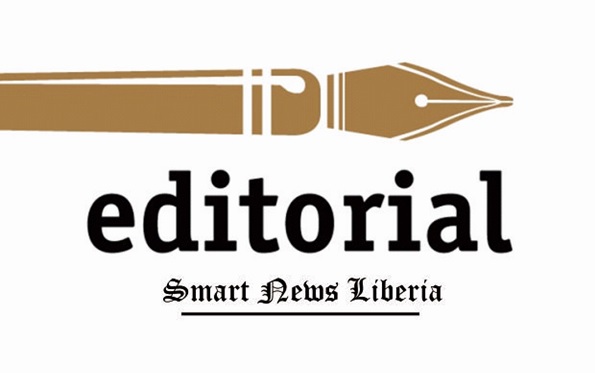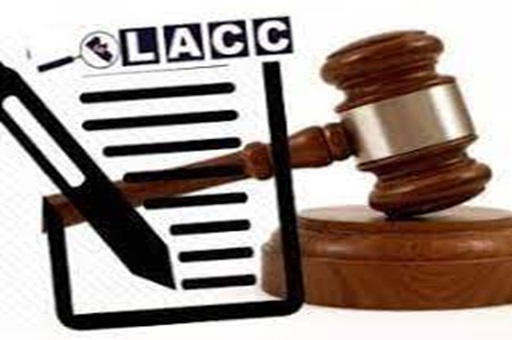MONROVIA, LIBERIA – A major scandal has erupted within the Liberia National Fire Service (LNFS), raising serious questions about corruption, abuse of power, and nepotism under the leadership of Director Warsuwah Barvoul. A covert cover-up effort has been exposed, linking Barvoul to the alleged theft of fuel and cash from the agency’s procurement department. The most damning detail: the primary suspect in the case is his own son.
An internal report, first documented in October 2024, revealed that more than $2,400 in fuel and cash had vanished from LNFS storage. The agency’s Chief of Procurement, Korpo S. Morris, formally alerted Director Barvoul in a letter detailing the loss of over 650 gallons of fuel. However, instead of initiating an investigation, Barvoul reportedly buried the matter to shield his son, Aaron Barvoul, whom he had personally appointed as a Procurement Assistant.
New evidence suggests that efforts to expose the theft were met with intimidation and coercion. Madam Morris, who demanded an inquiry, found herself under pressure to take responsibility for the missing funds. Director Barvoul allegedly instructed her to repay the stolen amount in monthly installments of $100, effectively forcing her to cover for his son’s actions. The silence from the agency’s leadership has only fueled public outrage.
Beyond the alleged theft, a closer examination of LNFS operations points to systemic corruption under Barvoul’s leadership. The agency appears to have been transformed into a family-run enterprise, with key positions occupied by his relatives. His other son, G. Warsuwah Barvoul Jr., holds a senior role in the VIP Fire Section. His brother’s wife, Catherine Kennedy, serves as Deputy Chief of Medic. Several nephews, including James E. Blackie, Calvin Marley, and Charles Appleton, also occupy high-ranking positions. Additional family members remain on the agency’s payroll, raising serious concerns about nepotism and misuse of public office.
The Civil Service Agency (CSA), which is responsible for preventing such employment abuses, has failed to act, enabling a culture of impunity. This unchecked power has allowed LNFS leadership to manipulate hiring practices, depriving qualified citizens of opportunities while benefiting those with personal ties to the director.
In response to mounting criticism, Barvoul has attempted to downplay the scandal by dismissing the fuel theft as an isolated incident rather than a case of corruption. However, legal and governance experts argue that the deliberate protection of a suspect and the use of public funds for personal gain meet the definition of corruption.
The Liberia Anti-Corruption Commission (LACC) is now under pressure to take decisive action. Calls for an independent investigation have intensified, with civil society groups demanding accountability. The evidence against Barvoul points to a blatant abuse of power, and failure to act would send a dangerous message that corruption is tolerated at the highest levels of government.
Liberians continue to struggle with worsening economic hardships, and scandals like these reinforce the public’s frustration with officials who exploit their positions for personal gain. The LNFS controversy is not an isolated case, it reflects a wider governance crisis in the country, where politically connected individuals operate with impunity. Unless meaningful reforms are implemented and those responsible face justice, Liberia risks further erosion of public trust in its institutions.
The call for accountability is growing louder. Director Barvoul must be held responsible for his actions, and a full audit of LNFS hiring practices must be conducted to dismantle the network of favoritism within the agency. Corruption has weakened the nation for too long, and if this case is ignored, it will only embolden others to continue exploiting the system without fear of consequences.







